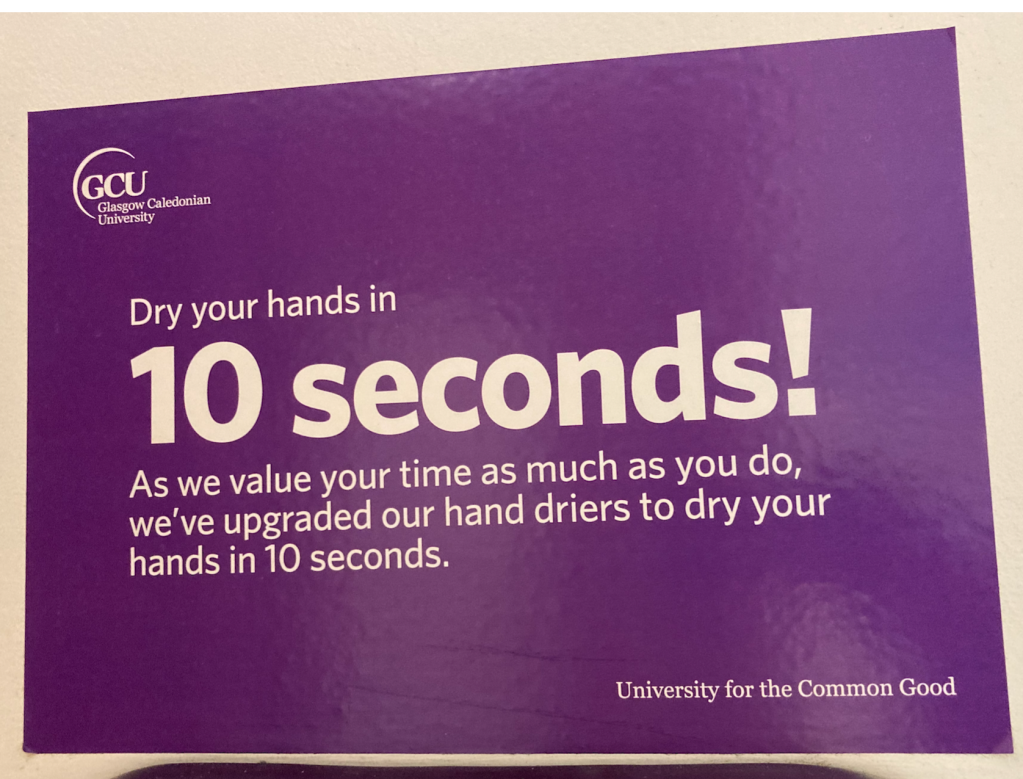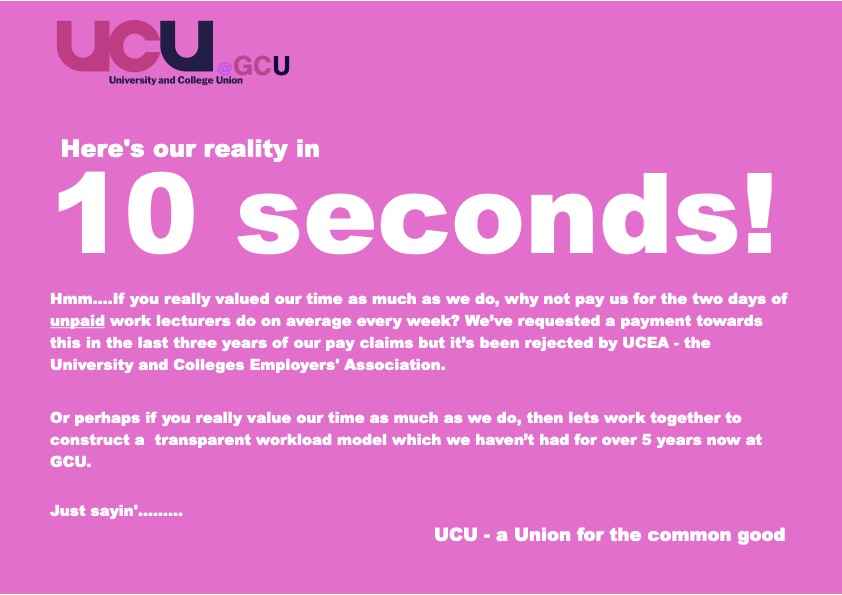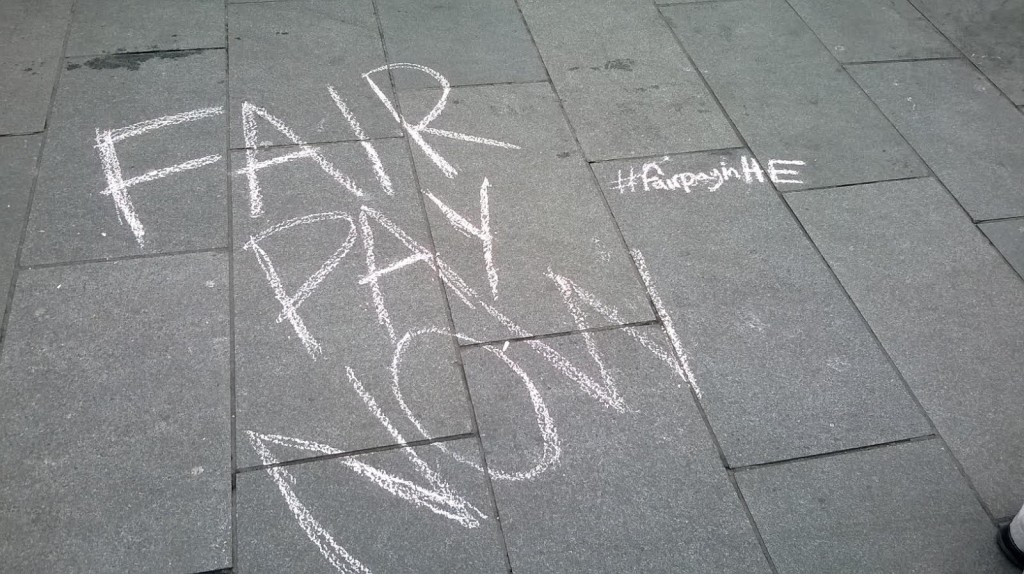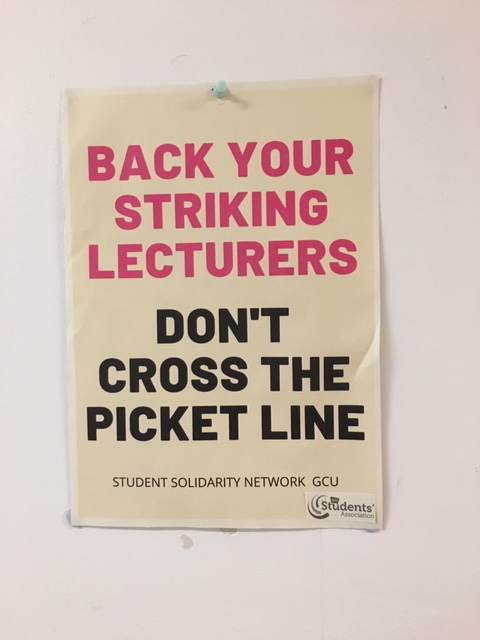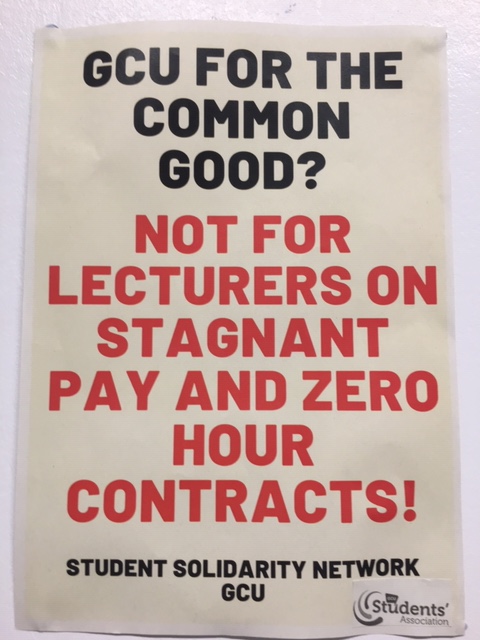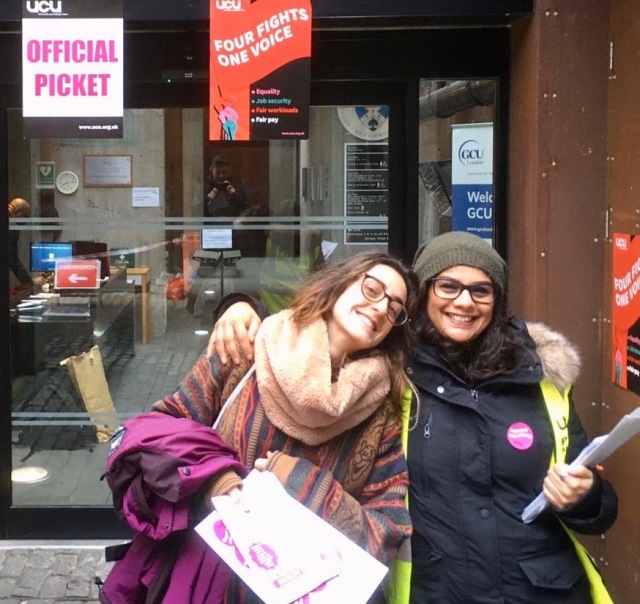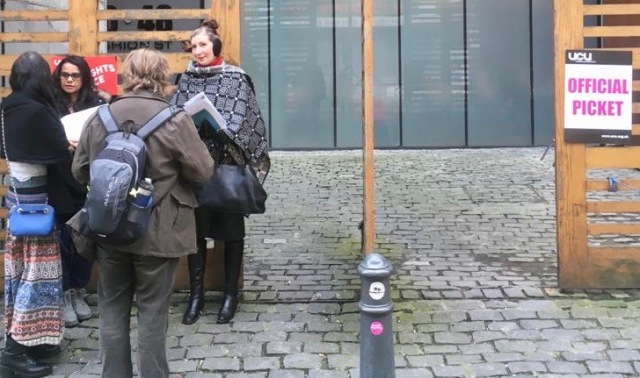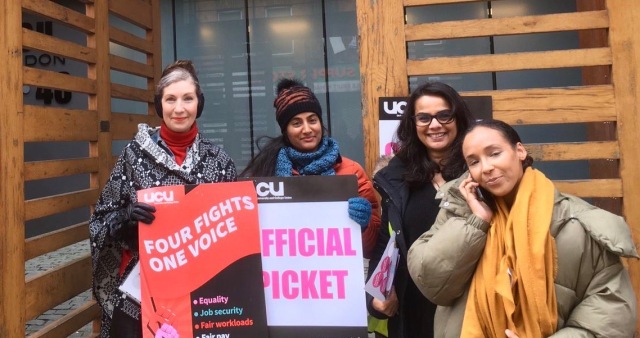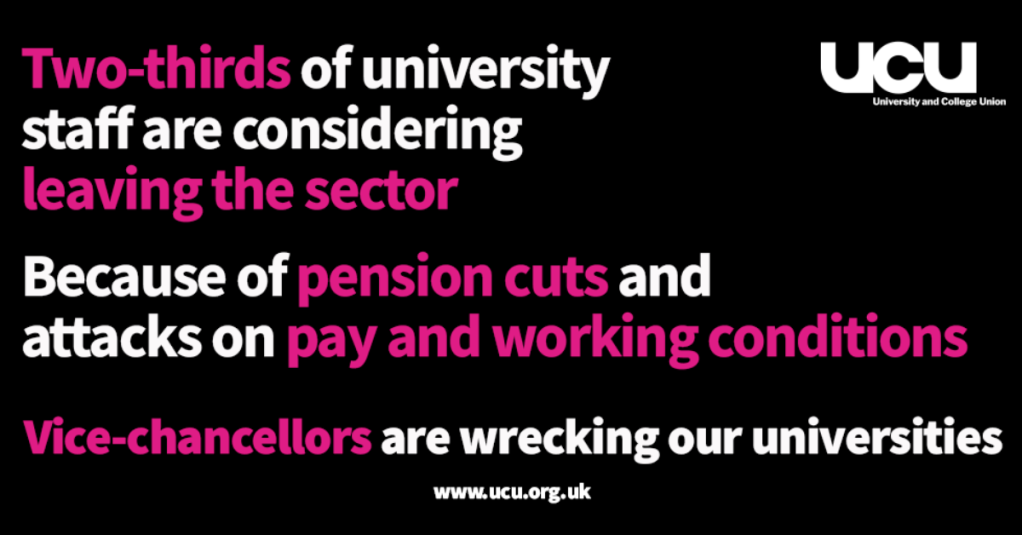
Research published by UCU following a survey of almost 7000 staff over 100 institutions, has indicated that
- more than eight in 10 (81%) of respondents aged between 18 and 29 said they are likely or very likely to leave the sector in the next five years
- almost eight in 10 (78%) respondents said employers’ failure to address issues around terms and conditions is preventing them from doing their job as well as they would want to
- workload, pay and casualisation are three biggest factors driving respondents away from higher education
This research carried out between 25 February and 2nd March provides a shocking snapshot of how staff feel about working in the sector:
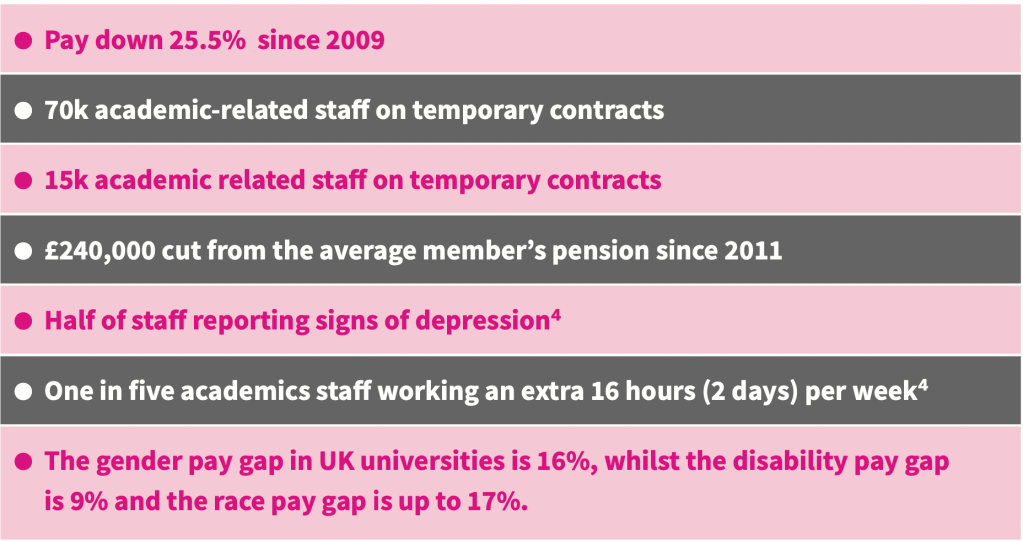
Your local branch of the UCU has been active on each of these issues above through our work with the other campus unions in the Joint Consultative Committee which meets regularly with local management. Our recent AGM decided that workload would be the priority campaign in the next period locally - and we’ve already taken the first steps aiming to appoint local workload reps in each department and talking to the other campus unions about a joint approach for substantial action from management on this. We have also taken our first steps in discussing our own vision of the University and how we think GCU needs to develop in the next phase of its activity as a ‘University for the Common Good’. If you’re personally interested in getting more involved in our workload campaign, or looking at a vision for the university in the next period, please just contact your Branch Secretary Lyle here, or Catriona our President here, or Douglas our Vice President here.
Meanwhile - while you’re considering this - please make sure you’ve posted your ballot regarding the current campaign on Wages and Conditions. If you need a replacement ballot you can get one by clicking the link below.
If you have not received your papers, you can order replacements to your preferred address using this form — but you need to do so by 5pm tomorrow, Thursday 31 March.


